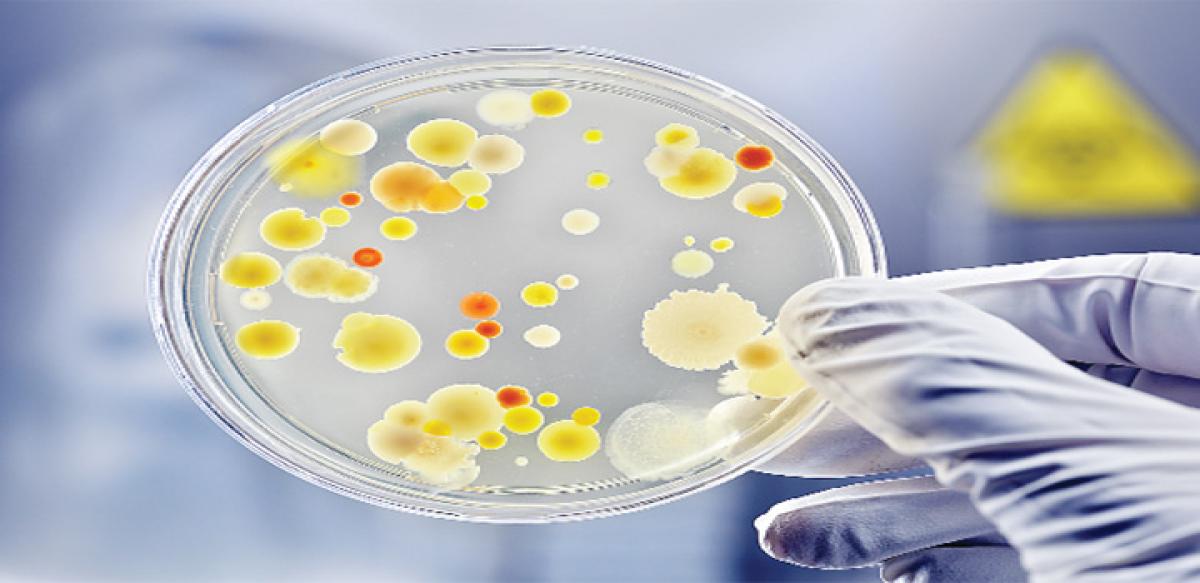How to become a microbiologist

As the academic year comes to an end, most of the Bi.P.C students passing out of 12th standard are exploring options to pursue higher studies. Microbiology is an important and a promising career for those interested in biology
As the academic year comes to an end, most of the Bi.P.C students passing out of 12th standard are exploring options to pursue higher studies. Microbiology is an important and a promising career for those interested in biology
Who is a microbiologist?
Although known by many different titles, a microbiologist is a scientist who studies living organisms and infectious agents many of whom can only be seen with a microscope. They also study the interaction of microorganisms with people. Every day microbiologists around the world explore, investigate, and discover how these organisms, called microbes, exist and affect our lives.
Where does a microbiologist work and with whom?
As a microbiologist, you will work with many other scientists and have a vast range of opportunities. Microbiologists work in almost every industry and have many different responsibilities. You will collaborate with many other scientists. Depending on your specific situation, you may perform more than one function or role.
How to become a microbiologist
Microbiologists need at least a bachelor’s degree in microbiology or a closely related field such as biochemistry or cell biology. Many colleges and universities offer degree programs in biological sciences, including microbiology. Most microbiology majors take introductory courses in microbial genetics and microbial physiology before taking classes in more advanced topics such as environmental microbiology and virology.
Students also must take classes in other sciences, such as biochemistry, chemistry, and physics, because it is important for microbiologists to have a broad understanding of the sciences. Courses in statistics, mathematics, and computer science are important for microbiologists because they must be able to do complex data analysis.
It is important for prospective microbiologists to have laboratory experience before entering the workforce. Most undergraduate microbiology programs include a mandatory laboratory requirement, but additional laboratory coursework is recommended. Students also can gain valuable laboratory experience through internships with prospective employers such as drug manufacturers.
Microbiologists typically need a Ph.D. to carry out independent research and work in colleges and universities. Graduate students studying microbiology commonly specialize in a subfield such as bacteriology or immunology. Ph.D. programs usually include class work, laboratory research, and completing a thesis or dissertation.
Career prospects
Microbiologists typically do the following:
- Plan and conduct complex research projects, such as developing new drugs to combat infectious diseases
- Supervise the work of biological technicians and other workers and evaluate the accuracy of their results
- Isolate and maintain cultures of bacteria or other microorganisms for study
- Identify and classify microorganisms found in specimens collected from humans, plants, animals, or the environment
- Monitor the effect of microorganisms on plants, animals, other microorganisms, or the environment
- Keep up with current knowledge by reviewing the findings of other researchers and by attending conferences
- Prepare technical reports, publish research papers, and make recommendations based on their research findings
- Present research findings to scientists, non-scientist executives, engineers, other colleagues, and the public
- Most microbiologists work in research and development. Many conduct basic research with the aim of increasing scientific knowledge. This may include growing strains of bacteria in various conditions to learn how they react to those conditions. Other microbiologists conduct applied research and develop new products or solve particular problems. Microbiologists who apply basic research to such problems may be developing genetically engineered crops or better biofuels.
Microbiologists use computers and a wide variety of sophisticated laboratory instruments to do their experiments. Electron microscopes are used to study bacteria and advanced computer software is used to analyze the growth of microorganisms found in samples.
It is increasingly common for microbiologists to work on teams with technicians and scientists in other fields, because many scientific research projects involve multiple disciplines. Microbiologists may work with medical scientists or biochemists while researching new drugs, or they may work in medical diagnostic laboratories alongside physicians and nurses to help prevent, treat, and cure diseases. For more information, see the profiles on biochemists and biophysicists, physicians and surgeons, and registered nurs
Types of microbiologists
- Bacteriologists study the growth, development, and other properties of bacteria, including the positive and negative effects that bacteria have on plants, animals, and
- humans.
- Clinical microbiologists study how microorganisms live and interact with their environments so that they can later be used to cause, cure, or treat diseases in humans, plants, or animals. Clinical and medical microbiologists whose work is directly researching human health may be classified as medical scientists.
- Environmental microbiologists study the ways in which microorganisms interact with the environment. They may study the use of microbes to clean up areas contaminated by heavy metals or study how microbes could aid crop growth.
- Immunologists study how plant and animal immune systems react to and defend against pathogens or germs.
- Industrial microbiologists work in industry and study and solve problems related to production. They may study microbial growth found in the pipes of a chemical factory, monitor the impact industrial waste has on the local ecosystem, or oversee the microbial activities used in cheese production.
- Mycologists study the properties of fungi such as yeast and mold, as well as the ways fungi can be used (for example, in food or the environment) to benefit society.
- Virologists study the structure, development, and other properties of viruses and any effects viruses have on infected organisms.














